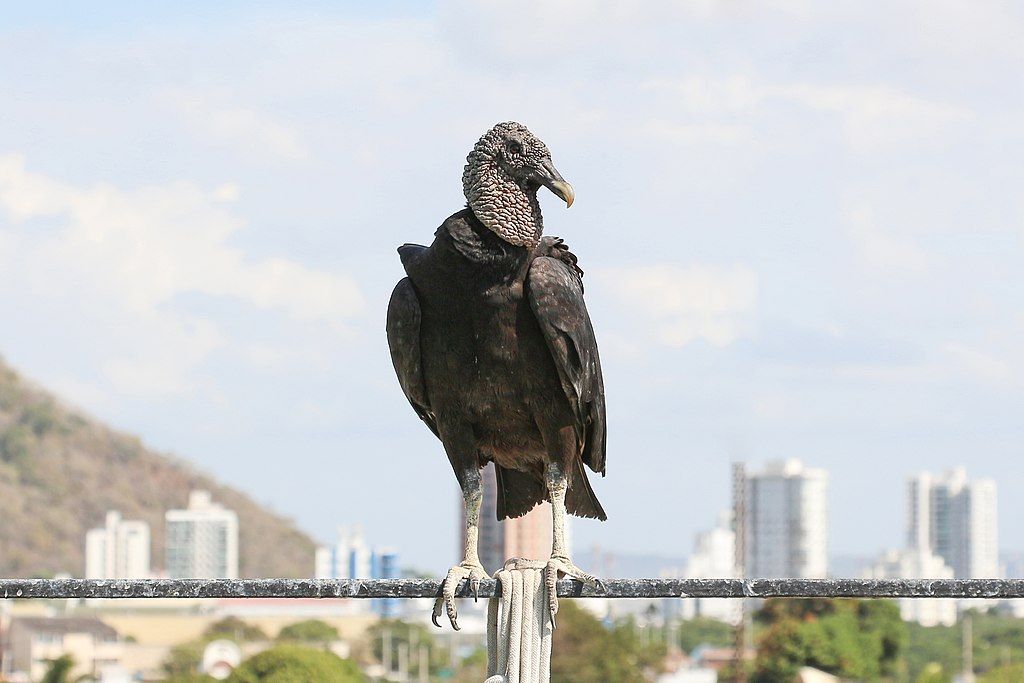
13 October 2021
Black vultures (Coragyps atratus) are unusual in western Pennsylvania but may show up in low numbers outside the breeding season, especially in the Ohio valley. If you’re not used to what they look like you’ll want some tips on identifying this “rare” bird.
When perched, adult vultures are easy to tell apart by the color of their heads. Black vultures have gray heads. Adult turkey vultures have red heads. But oops! juvenile turkey vultures have gray heads so you’ll need other clues.
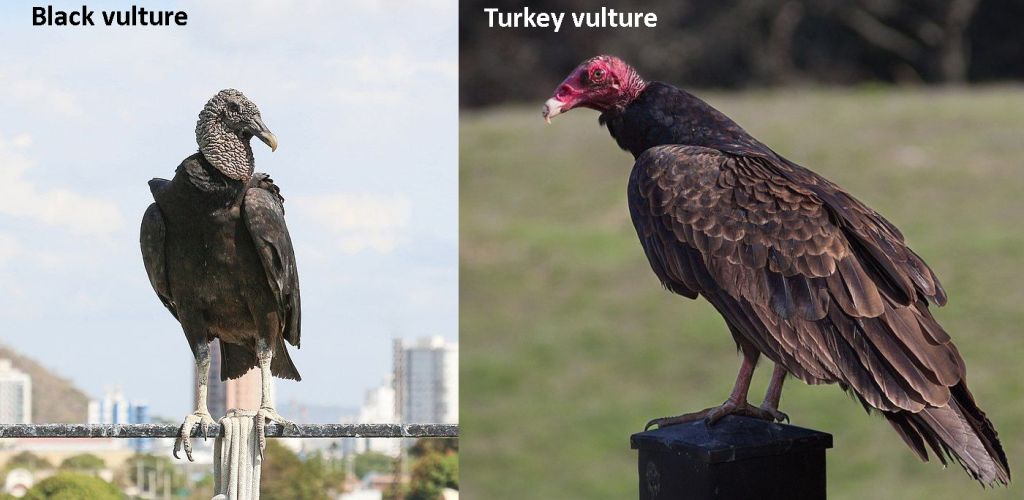
In flight …
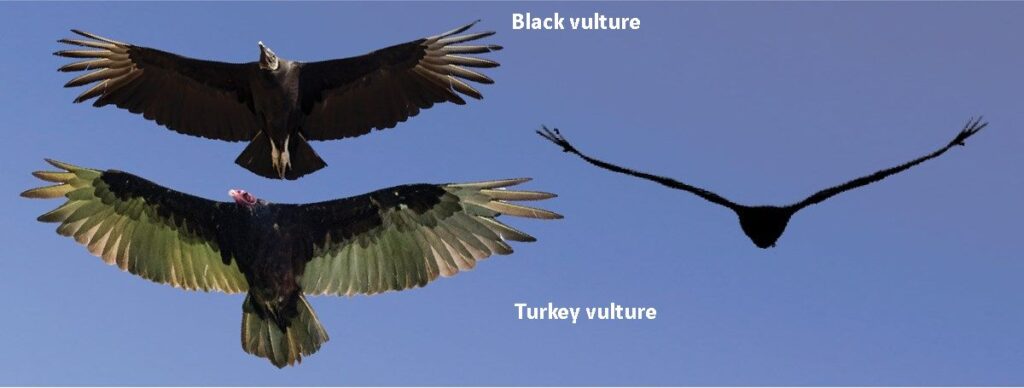
Black vultures have:
- All black feathers with grayish white wing tips like white gloves.
- Short square tails, only as long as their legs.
- Gray legs visible against their dark tails from below.
- Flap a lot between soaring bouts, especially when trying to gain altitude. Flap-flap-flap-flap-flap-flap Soar…Soar…Soar… flap-flap-flap-flap-flap.
- Steady when soaring, not teetering.
Turkey vultures have:
- Two-tone wings, brownish black at the leading edge, gray at the trailing edge.
- Tails longer than their legs.
- Red head.
- Turkey vultures refuse to flap! When they do flap it is one huge bow like a great blue heron.
- Soar in an obvious dihedral V while teetering back and forth. V is for Vulture.
Here are two more flight shots. Can you tell who’s who?
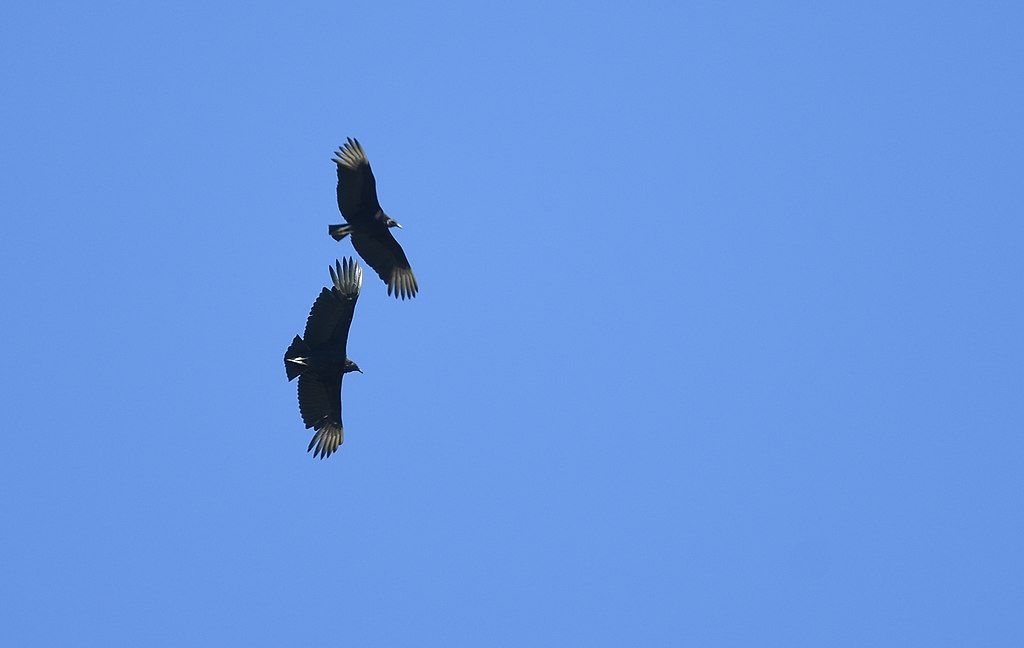
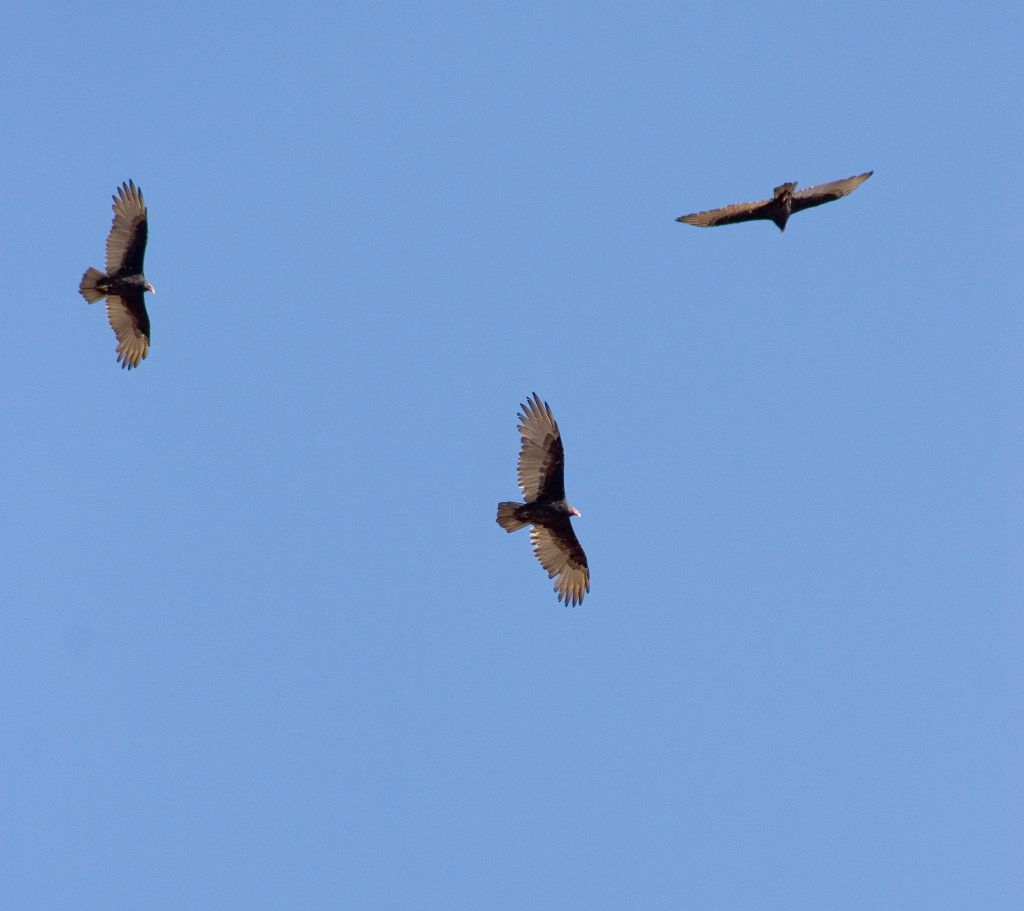
And finally, I don’t think turkey vultures will stand on cars, but black vultures will. Sometimes they get bored and damage rubber seals or vinyl on trucks and SUVs, especially at boat ramps. Bob Kroeger took this photo at Conowingo in March 2020. He was glad this was not his car.
Don’t worry. This doesn’t happen in Pittsburgh.
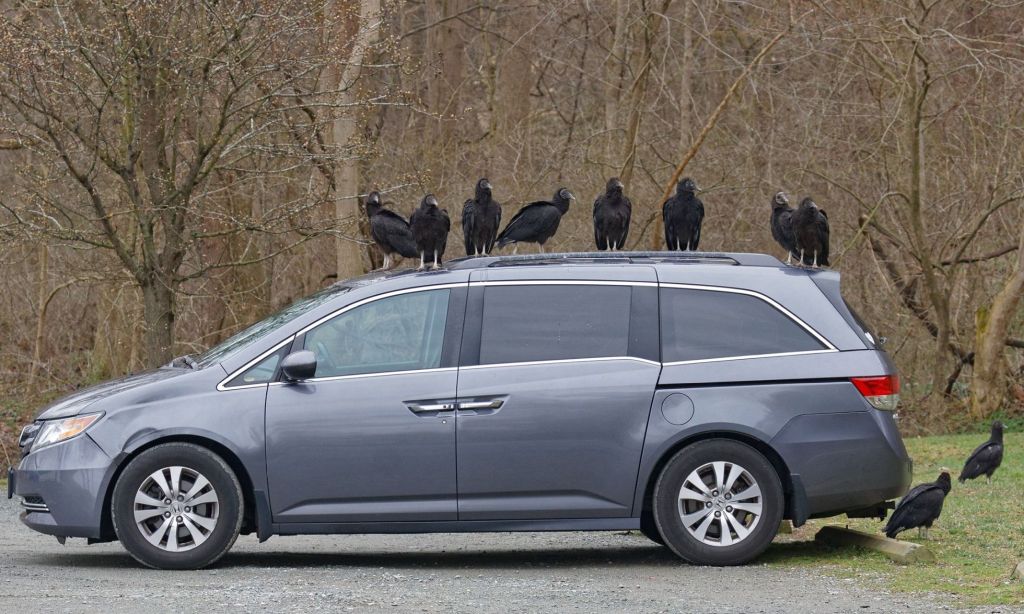
(photos by Bob Kroeger and from Wikimedia Commons; click on the wiki captions to see the originals)
Had the opportunity to study both in flight, near and at a distance, last year in DC. For me, it was the tail length that defined them the most. After seeing so many turkey vultures here, the black vultures just didn’t seem to have much tail.
Seeing one would be a thrill!